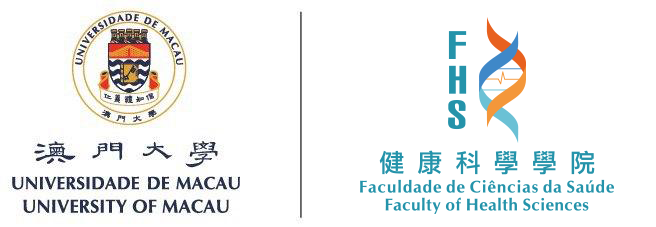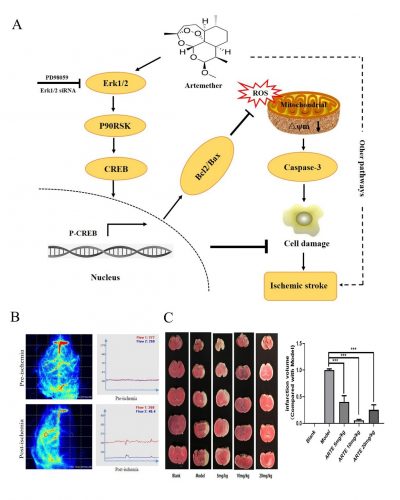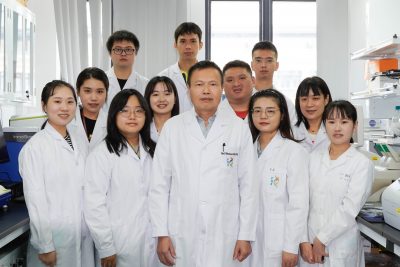A research team in the University of Macau’s (UM) Faculty of Health Sciences (FHS), led by Professor Wenhua ZHENG, has made a new breakthrough in artemisinin’s neuroprotective action, bringing great news to patients suffering from neurological diseases, such as stroke. The research team found that artemether, a derivative of artemisinin, offers protection against cerebral ischemia injury, a finding with great significance for the field of stroke prevention and treatment. This work has been published in the internationally renowned journal Redox Biology, a top journal in the endocrinology and metabolism category.
Ischemic stroke is one of the leading causes of adult disability and death in the world, and the morbidity rate has been increasing around 8.3% each year. Currently, there is a lack of effective treatment options and the scope of application of currently available drugs approved by U.S. Food and Drug Administration (FDA) is very limited. Since available therapies are unable to effectively prevent neuron-related damage caused by ischemic stroke, researchers have been trying to develop new drug candidates and treatment approaches.
Prof. Wenhua ZHENG’s research team found that the artemisinin derivative artemether reduces the cerebral infarction volume and brain edema, improves neurological scores, and reduces cell apoptosis and inflammation in mouse models of stroke via activation of the Erk1/2-P90rsk-CREB signaling pathway. This finding reveals the potential of artemether as a new therapeutic candidate drug for the prevention and treatment of stroke.
Researchers discovered that artemether combats cellular damage caused by oxygen-glucose deprivation through the activation of the Erk1/2 signaling pathway which has been attributed an important role in cell proliferation, survival, and apoptosis. Prof. Zheng pointed out that this study evaluated the protective effect of artemether in middle cerebral artery occlusion (MCAO) stroke animal models and oxygen glucose deprivation (OGD/RP) cellular models. Research data indicates that artemether plays a key role in cerebral ischemic injury prevention.
The research was led by Wenhua ZHENG, and FHS postdoctoral fellow Shuai LI is the first author, and the PhD students Tangming PENG and Xia ZHAO are the co-first authors. This research work was supported by the National Natural Science Foundation of China (file numbers: 31771128 and 32070969), the Science and Technology Development Fund, Macao SAR (file numbers: 0127/2019/A3, 0044/2019/AGJ and 0113/2018/A3) and UM (File No.: MYRG2018-00134-FHS). The full version of the research article can be viewed at https://www.sciencedirect.com/science/article/pii/S2213231721002287?via%3Dihub.



